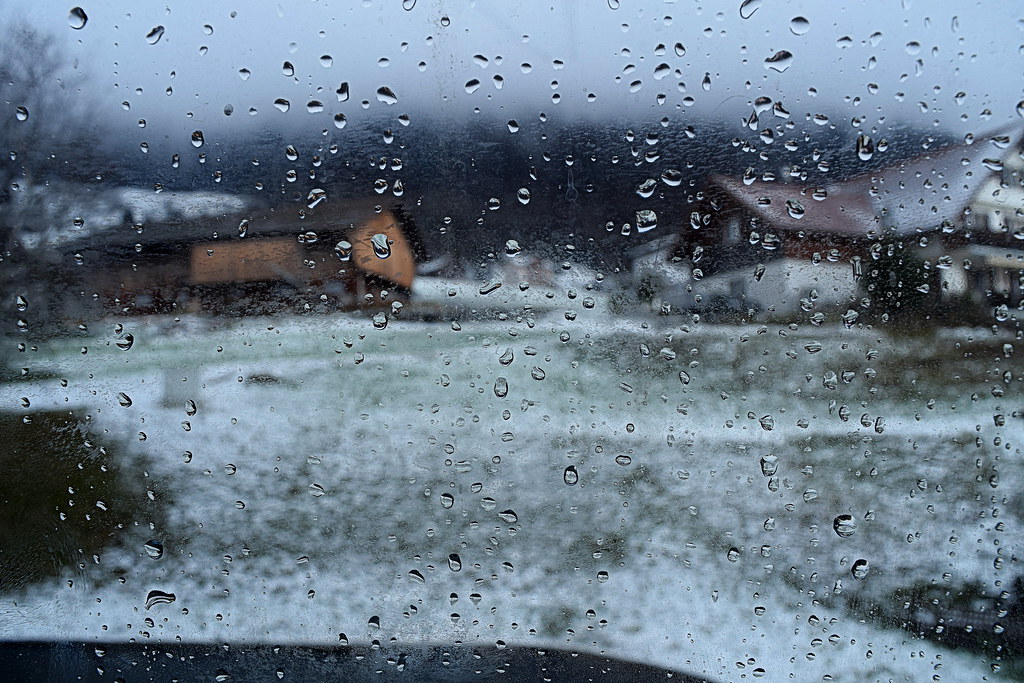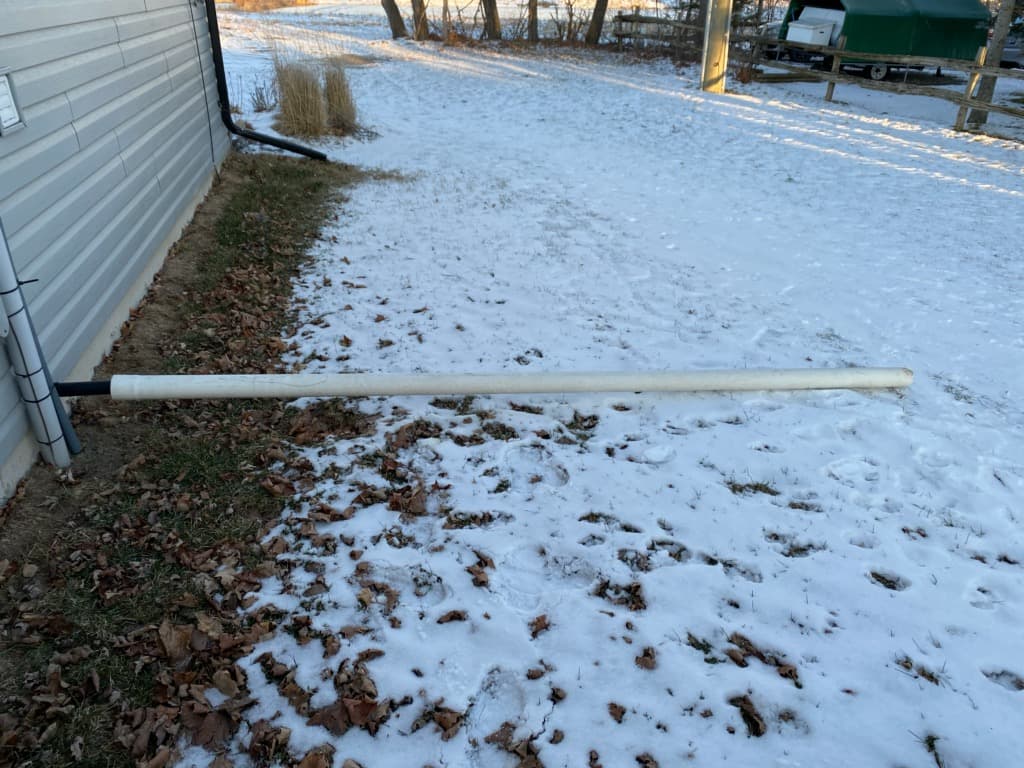
What to do when the ground is frozen and then it rains?
We all know that rain can be a real problem for causing flooding in certain areas, but if you couple rain, with a ground that is frozen, the flooding problem becomes even worse. Keep in mind it is not overly common for heavy rain to fall in the winter time but it does occasionally happen and with the way weather trends are going it may happen more and more frequently. We want you to be prepared in the event it does occur!
The first thing we should clarify is when we say frozen ground we do not mean the ground itself is frozen, we actually are referring to the moisture in the ground that freezes. The moisture in the ground is only able to freeze to a certain level, this level is known as the frost line. When the ground is frozen the rain is not able to be absorbed into the ground as it normally would in the spring or summer time. As a result the rain tries to go elsewhere and if you are not careful or prepared the rain could try and get into your home.
Homeowners insurance usually covers water damage from rain if an extreme weather condition causes the rain to enter your home.
Things to do before the rain falls
Check your sump pump
The first thing you will want to do is ensure your sump pump is working properly and that you have a backup generator in case the power goes down in your area. It is also extremely important to make sure that you know where your sump pump line is pumping the water out to. In the winter, when the ground is frozen if the water is not pumped far enough away from your foundation it will not be absorbed into the ground at all and it can flow right back into your basement. This can cause your sump pump to overflow or fail and water to enter your basement.
Make sure before the heavy rainfall that your sump pump is working and that the line outside your home is not blocked and is flowing far enough away from your foundation that the water will not flow back into the basement. It is also important to note that sump pump lines are usually a lot smaller in diameter than a downspout and so they can freeze more easily. Do your best to make sure the lines are not frozen and if they are consider temporarily replacing them with piping that is larger in diameter. This will reduce the chance of the lines freezing and blocking the water from exiting. The picture below illustrates the sump pump line (black) coupled with a larger pipe (white) to make sure the water flows away from the foundation properly.

Check your downspouts
In the winter your downspouts can also freeze or become clogged with snow or ice. It is not recommended to get on the roof of your house in the winter especially if there is snow or ice or you may end up falling off your roof like Clark Griswold in Christmas Vacation.
What is important is to clear the base of the downspouts from any snow or ice build up and also run far enough away from your foundation that the rain water will not pool at the base of the downspout. Your foundation and the ground around your foundation will likely not be frozen as the heat emanating from your home and your basement walls will keep it from freezing. Refer to the picture above where the ground area around the house is thawed while the rest is not. This is actually where the problem lies as the water will look to seep back down the foundation walls and into the thawed ground.
Seal wall and foundation cracks
The last item on the list is to attempt to seal any cracks in your foundation. This can be difficult especially with short notice and in the winter time, which is why it is important to monitor your foundation year round and tackle problems as they arise. Hiring professionals to seal the cracks in your foundation or walls is always the best option. If you find yourself in a pinch there are foundation sealers that you can purchase and attempt to apply yourself. Please note that the effectiveness of these sealants varys from product to product and may not prevent water from entering your foundation.
Things to do while the rain is falling
Keep an eye on your basement
During the rainfall you need to keep an eye on your basement and your sump pump to ensure things are working properly. In the event you notice an issue do your best to assess where the water is entering and attempt to mitigate the damage. This could mean firing up your backup generator, shutting off your water lines, or calling a local plumber or disaster mitigation expert. Either way be alert and ready to respond if needed.
Stay off the roads
Avoid driving as much as possible. Rain in the winter does not make for good driving conditions. Winter tires are a must. If you do need to drive slow down and leave yourself plenty of time. Avoid hard braking or fast acceleration as these can lead to sliding on the water or ice. Leave a good distance between yourself and the other vehicles on the road. And most importantly do not use your cruise control! Your vehicle can hydroplane on the water and in the winter if the ground is frozen the water does not always flow off the road, it will often pool making this even more dangerous.
Be cautious for damage after the rain
After a rainfall in the winter the water will eventually be absorbed into the ground. If there is a heavy rainfall that can mean a lot of moisture trying to find a place to settle. When the moisture freezes below the ground it expands and this can cause the ground to swell. This can be detrimental to footings and foundations, which is why building codes specify that the structural footings need to be placed below the frost line (which in Southern Ontario typically does not extended beyond 3 feet underground). The same holds true for your water lines and sewer pipes. If they are not below the frost line the pipes can freeze and expand and rupture or burst causing significant damage. Most water lines are 8 feet below the ground’s surface. If you house is built properly you likely will not need to worry. However, decks or porches, as well as your foundation may experience damage after the rain has been absorbed into the ground and freezes again. If you notice damage it is important to document it as soon as possible and contact a professional to assess the damage.
In conclusion
Living in Canada comes with many great perks, rain in the winter isn’t one of them, but hopefully with these tips you’ll be able to steer clear of any flooding or damage. And remember being proactive is always the best approach to make sure you are prepared.
You Might Want to Read
November 6, 2024
Meet the Dougallers: Brendan Hagerman
October 7, 2024
Welcome Tipper Financial Services to the Team!
September 11, 2024
Welcome Excalibur Insurance to the Team!



